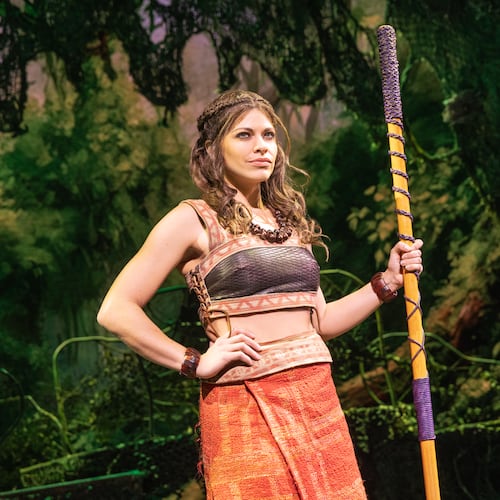The subject line of the email quickly caught my attention:
“Georgia, Answer the Call to Serve as a Poll Chaplain!”
I wasn’t very familiar with that type of work, so I opened the email from Faiths United to Save Democracy. As part of a national initiative, the organization is looking for volunteers in key polling states willing to train as nonpartisan faith leaders in upcoming elections.
My first thought? What does it say about the state of our society that we are now turning to trained faith leaders to help ensure peaceful and successful elections? Have we fallen so far from civility that we can no longer exercise our right to vote without some sort of spiritual oversight?
I wanted to learn more about the role of a poll chaplain, which includes looking for and addressing any misconduct at the polls, helping voters with questions and de-escalating conflicts.
If November’s presidential election is anything like the last one in 2020, it’s going to come with some intense emotion and probably some confusion over voting regulations.
A significant portion of the American population is losing confidence in our election process. After Joe Biden’s controversial victory in the last presidential race, state legislatures around the country began passing a host of new laws that often reflected a partisan bent.
“There remains a stark divide between states,” asserts a study by the Brennan Center for Justice, a nonpartisan law and policy institute. “On one side are those that are broadening democratic participation. On the other are those making it harder to vote and easier for partisan officials to interfere in democratic processes. Many states passing new restrictive laws are the places where it is already hard to vote.”
In Georgia, a new voting law, first tested during the 2022 midterm elections, made the rules for absentee ballots more stringent and made it more challenging for voters who arrived at the wrong polling place to use provisional ballots.
There were complaints of long wait times and challenges to voter eligibility. But some state officials have argued that Georgia’s high turnout during the midterm elections, the highest of any state in the South, indicated that the new voting laws did not suppress voters.
Now Georgia lawmakers are pushing a series of bills related to election administration, such as security watermarks on ballots and increasing audits of certain state races. More contentious proposals, such as ending automatic voter registrations and decreasing the number of voting machines, failed to pass but could be resurrected.
Lawmakers supporting the bills say the objective is to restore voter confidence, but it feels as if their actions might just promote more voter confusion.
Poll chaplains could be more crucial than ever in helping to protect the integrity of voting in the 2024 election.
The Rev. Letitia Campbell, an assistant professor at Emory’s Candler School of Theology, trained years ago with the New Georgia Project as a poll chaplain.
Supporting voters at the polls is a way to show moral leadership, she told me when we talked by phone.
Civilians can also train to be poll chaplains, but the ranks are largely drawn from faith leaders, seminarians and faith-based organizers.
Campbell reminded me of the long history of religious leaders’ involvement in democracy and voting.
“Many of the places I have voted in my life have been in churches,” she said. “These are often places that encourage people to vote and exercise their responsibility as citizens and to think about how to vote in ways that reflect their principles and faith commitment.”
The rise of poll chaplains signals a new expression of that historical commitment to voting and voting rights. And a highly polarized political moment can make voting a source of anxiety.
In past years when she has served as a poll chaplain, Campbell said, people showed up to the polls stressing about their access. Would they be turned away? Would they have the correct identification? Were they even at the right polling place?
Poll chaplains can answer those questions or provide resources when they can’t answer a question.
Campbell said it is crucial that poll chaplains are trained in every voting cycle in every state to stay on top of new regulations.
We are living in unnerving times.
This year when I head to the polls, I’ll be looking for the calming presence of a poll chaplain. If not for assistance, then simply for reassurance.
Read more on the Real Life blog (www.ajc.com/opinion/real-life-blog/) and find Nedra on Facebook (www.facebook.com/AJCRealLifeColumn) and Twitter (@nrhoneajc) or email her at nedra.rhone@ajc.com.
About the Author
Keep Reading
The Latest
Featured

